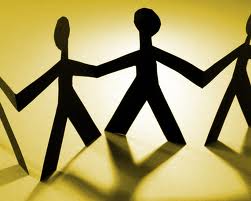
The most powerful form of God in the second person is almost certainly the prayer experience. It is told that when Hassidic master Levi Yitzchak of Beridchev used to pray he would begin the standard liturgical form of blessing. “Baruch Ata Adonai,” “Blessed are you God,” and then break out of the mold of blessing crying out in sheer joy, ” YOU… YOU”¦ YOU”¦ YOU!” He would lose himself in these words repeatedly shouting in ecstasy, “YOU… YOU”¦ YOU!!!” This is the rapture of God in the second person.
For Levi Yitzchak the blessing is a kind of Buddhist pointing out instruction. It points however not to sunyata or emptiness but to God in the second person. Nachman of Bratzlav taught the spiritual practice of Hitbodedut. In one form this meant walking alone in the forest “talking to God as you would to your friend.”
In God in the second person we meet God and bow. In God in the second person we meet God and partner. In God in the second person we meet God and love. The key however is the encounter. It is the encounter with God in history and in the lived reality of every human being that is the essence of the God in the second person experience.
Dr. Marc Gafni
The Dance of Tears
(in press)
